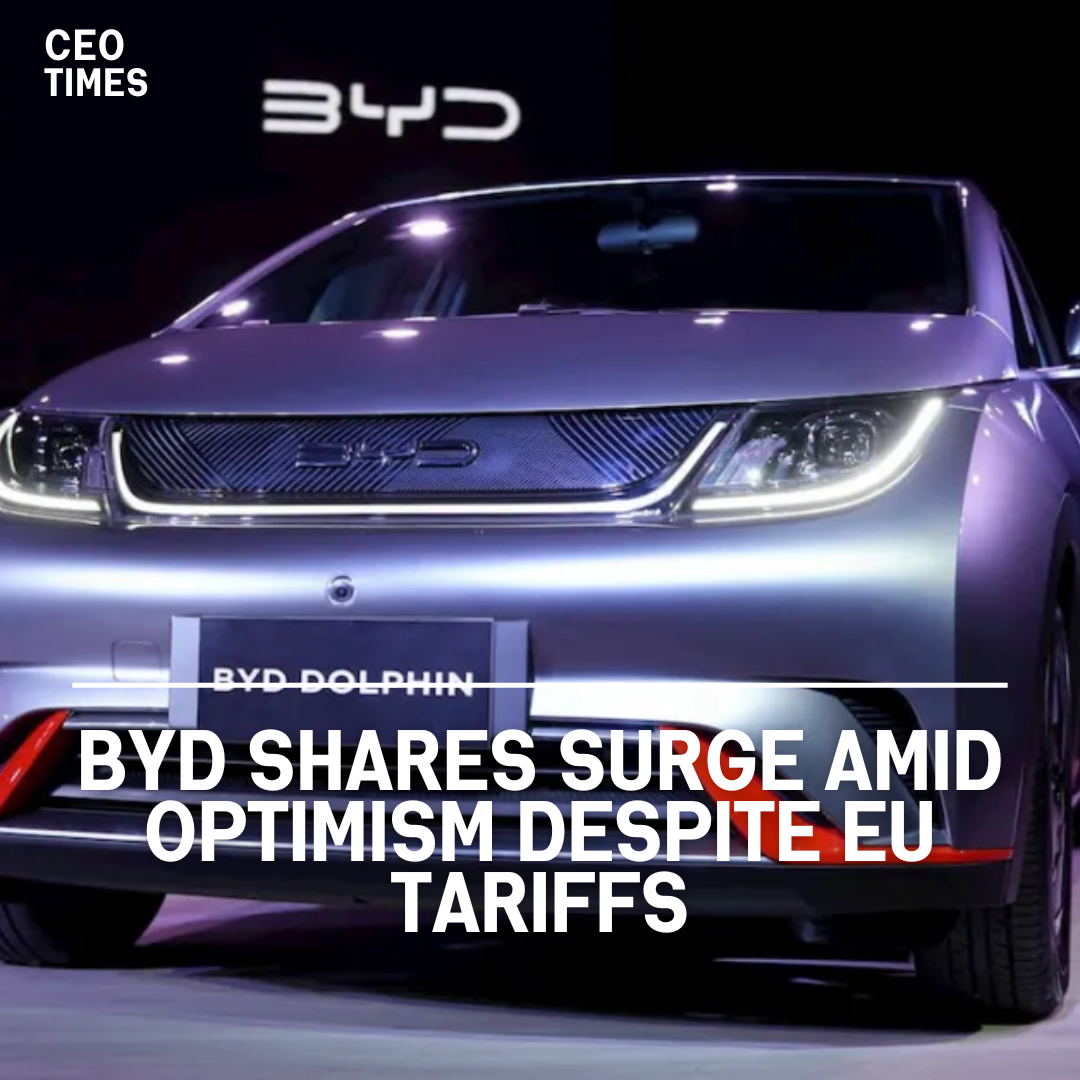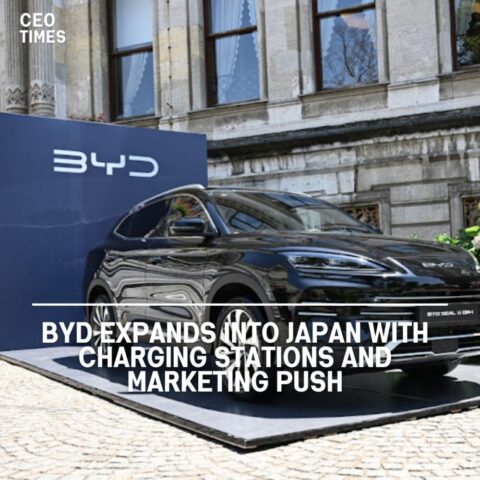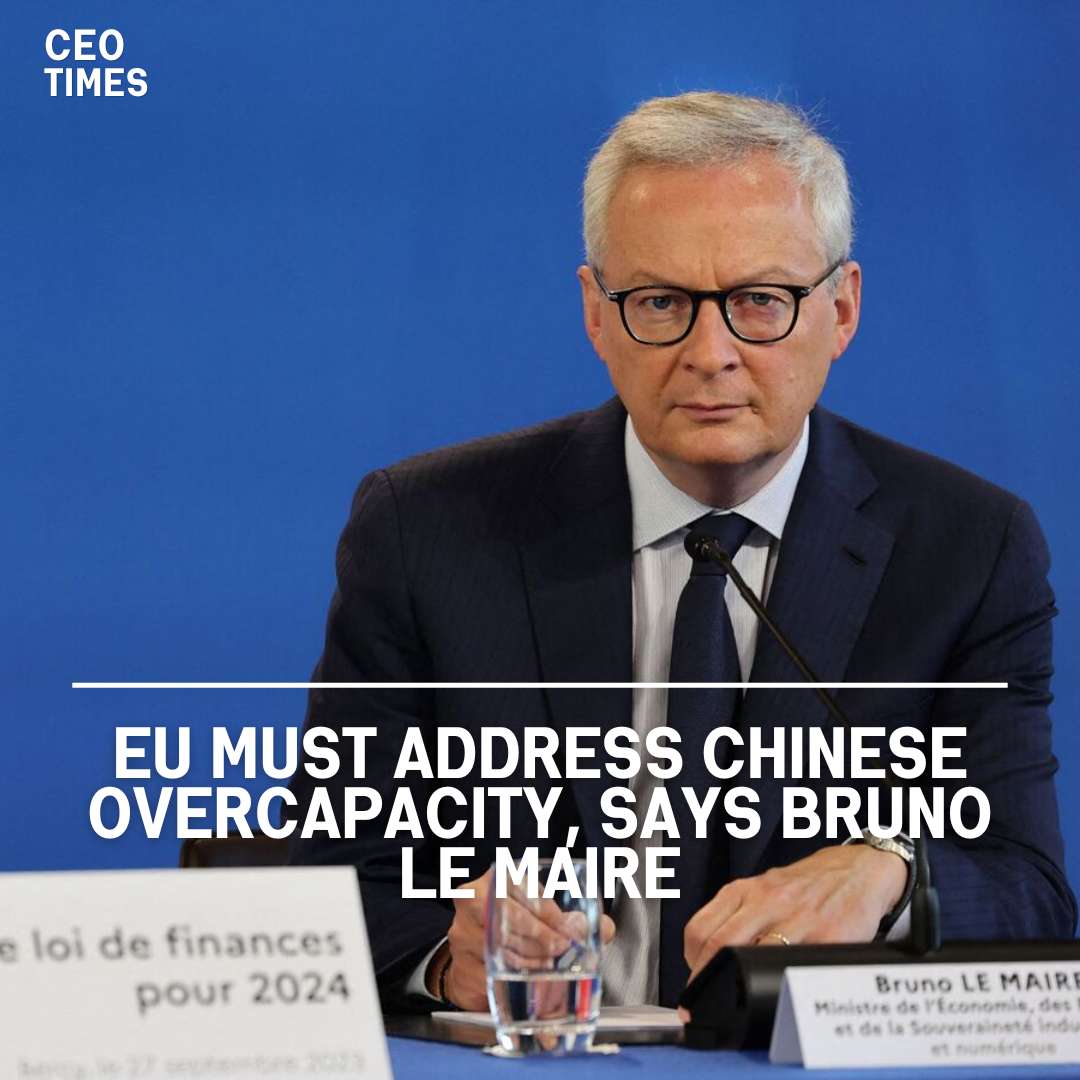BYD Shares, the world’s largest electric vehicle (EV) maker, experienced a significant rise as investors showed optimism about its ability to maintain its competitive edge despite impending tariffs from the European Union (EU).
BYD’s Hong Kong-listed shares soared by 8.8%, making it the top gainer among Hang Seng Index constituents, while its A shares increased by 4.2% in Shenzhen.
EU Tariff Announcement
The European Commission, the EU’s executive arm, announced plans to impose an additional 17.4% duty on imports of BYD’s battery EVs from China starting next month, with an existing 10% tariff on all Chinese EVs.
These provisional duties will be implemented from July 4 unless ongoing discussions with Chinese authorities yield a different outcome.
Market and Analyst Reactions
Despite the higher duties, analysts remain optimistic. Chinese EV makers, including BYD, have been actively localizing European production and diversifying their market reach by exporting to regions like Southeast Asia, Australia, Brazil, and Mexico.
Analysts from Nomura and Bernstein highlight BYD’s ability to maintain strong gross margins and potentially break even on an import model due to its structural cost advantages.
Localization Efforts and Future Plans
BYD’s plans for localization in Europe include a factory in Hungary slated to start production within the next three years.
This strategy is seen as a positive move to mitigate the impact of tariffs and maintain competitiveness in the European market.
Comparison with Other Chinese Automakers
The 38.1% tariff for state-owned SAIC Motor was unexpected and is likely to pose significant challenges for its MG Motor brand, which sold a large number of China-made cars in Europe last year.
Analysts predict slower inventory movement for MG due to a reduced price gap with local competitors. In contrast, Geely Automobile shares rose 2.1% in Hong Kong, outperforming the Hang Seng Index’s gain.
Broader Impact on Chinese EV Makers
Other Chinese carmakers cooperating in the EU’s investigation, including XPeng, NIO, and Great Wall Motor, will face an additional 21% duty. In comparison, those that did not cooperate will be subjected to a 38.1% tariff.
According to the European Commission, Tesla’s China-made cars might receive an individually calculated duty rate at the definitive stage.
Analyst Insights
Daiwa analyst Kelvin Lau noted that, unlike the U.S., the EU’s tariff decision is relatively moderate, with additional tariffs ranging from 17% to 21%, considered “very mild.”
This stance suggests that the EU has not entirely closed its market to Chinese EV makers, allowing for continued competition and market presence.




















